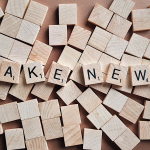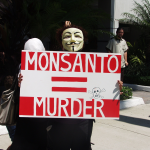Masks offer some protection against COVID-19 infection, but not nearly as much as the authorized vaccines. By telling the public they have to continue masking after immunization, we all but guarantee skeptics will forgo both shots and masks.
COVID
Despite relatively high vaccine uptake, New York City is about to enact mandatory shots for all residents before they can visit indoor restaurants, gyms and entertainment centers. This is unhelpful at best and counterproductive at worst.
How do you protect a baby who can't get vaccinated from relatives who won't get vaccinated? Scientific arguments don't work, but proper incentives and boundaries just might. Here's what I've discovered in my first few weeks of parenthood.
The Philippines has finally approved Golden Rice, a genetically engineered crop designed to combat vitamin A deficiency. Greenpeace, never content to let evidence guide its agenda, has trotted out some mealymouthed justifications to urge regulators to reverse the decision.
When you have a baby on the way, everybody has "helpful" advice that isn't all that helpful. Most of it, in fact, is downright useless, and some of it is potentially very harmful. We'll start with the latter and revisit the useless in part two of this series.
If we want people to refuse COVID vaccines, a recent CNN segment featuring political pundit Max Boot illustrates how we can do it.
A new study suggests that vaccine lotteries won't boost COVID-19 immunizations. Politics and hypocrisy may help explain why these incentive-based campaigns yield disappointing results.
In recent months, the media has called on celebrities to open up about their COVID vaccination status. Immunity is a shared space, the argument goes, and pro-vaccine pop-stars can convince the public that getting immunized isn't just a personal choice. There's some truth to this, but the argument raises touchy ethical questions about privacy that need to be answered.
Social media censorship has exploded since the beginning of the pandemic, in large part thanks to the proliferation of so-called "fact-checkers." While efforts to limit the spread of false information online seem sensible, experts are starting to point out the downsides of tech companies moderating scientific disputes.
Vaccination status on dating sites has become an issue as more people have been immunized. Some online daters are concerned about the disease while others worry about privacy issues if the dating app is linked to government databases. Should people simply be counted on to tell the truth about their vaccination status? Having dwelled for far too long in that gruesome world that's an easy one: hell, no. Too many lies and too many liars.
The Vaccine Adverse Event Reporting System (VAERS) is a favorite tool of skeptics aiming to spread immunization fears. As it turns out, VAERS has actually helped ensure the safety of FDA-approved shots.
The anti-GMO movement used to be a cultural juggernaut. But as time goes on, the activist groups that once held so much sway seem increasingly irrelevant.











